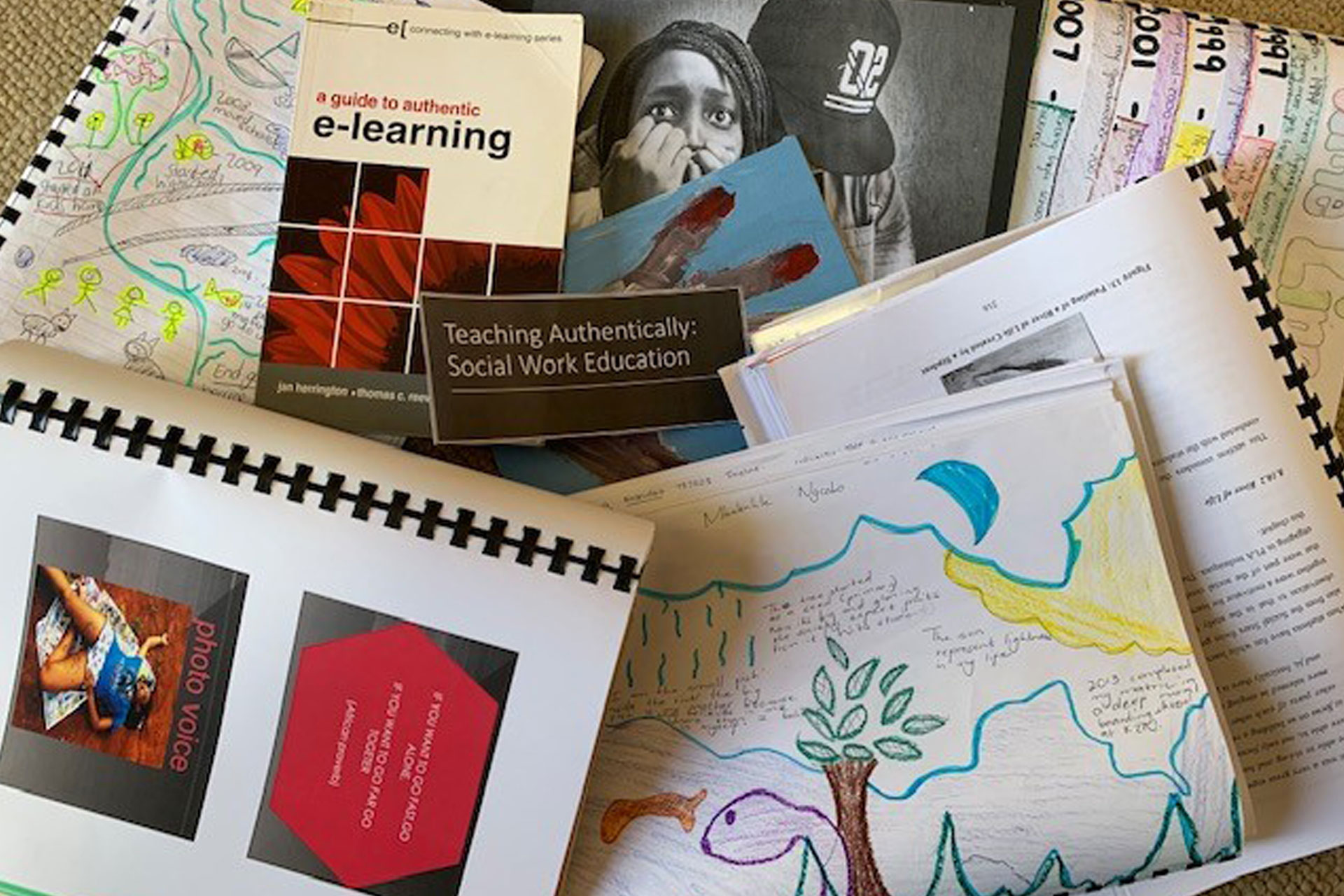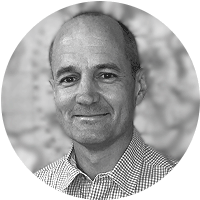
PROJECT
Social Work with Groups Using Authentic eLearning
The course I teach to 2nd-year undergraduate students is based on the following design principles:
Authentic activities provide the opportunity to collaborate
Provide opportunities for students to collaborate and share ideas and information (Lave & Wenger, 2003; Herrington et al., 2010). Encourage rapport and group cohesion, both in face-to-face and online spaces (Corey, et al., 2010; Rourke et al., 2001).
Real-world relevance
Include activities in which each of the groups of students choose a social condition from within the South African context, in which they are interested, and motivated to learn more about. In this way, the social condition is part of the current context and cultural milieu with which the students feel connected (Rule, 2006).
Authentic activities provide the opportunity to develop skills in social work
Foster discipline-specific professional values and make use of real-world examples. Use experiential learning and role-play to allow students to engage and perform in class. Students learn about group work while working in a group and become inducted into the profession of social work (Wenger, 2006).
Authentic activities provide the opportunity to reflect
Engage students in activities that facilitate critical reflection and link this type of reflection to the discipline-specific values of being a reflective practitioner in social work. Encourage students to pay attention to both reflection in and on the process (Schön, 2011). When using deep reflection, acknowledge the role played by emotion. Create safe spaces in the learning environment.
Authentic activities provide opportunities for creative problem-solving
Allow for problem-solving creativity and flexibility, and allow students to find their own paths to finding solutions (Herrington et al., 2010).
Authentic activities are conducive to communication and learning
Encourage debate, articulation and role modeling by the educator and the students (Herrington et al., 2010; Wenger, 1998; Zeman & Swanke, 2008). Allow for conflict and encourage students not to take criticism personally.
Authentic activities should be examined from different perspectives
Allow for competing solutions and diversity of outcomes, thus encouraging flexibility and acknowledgment of the views of group members (Brown et al., 1989; Herrington et al., 2010).
An authentic task is ill-defined and complex
Encourage self-regulated learning and collaborative learning, giving students the opportunity to choose their learning path and their own topic, and take ownership of their own learning and the learning of their members (Herrington et al., 2010; Vygotsky, 1978).
Author

Roshini Pillay
Roshini Pillay is a Senior Lecturer in Social Work at the University of the Witwatersrand. She holds a PhD from the University of the Western Cape. Her thesis was entitled: Crafting a meso practice course using elements of authentic learning for undergraduate social work students. Her supervisors were Professors Vivienne Bozalek and Denise Wood. Roshini has had more than 20 years of practice experience as a social worker before joining the academy. She is passionate about social work education Technology Enhanced Learning and Occupational Social Work. She subscribes to the social justice value of OER.
Mentor
Neil Butcher
Neil Butcher is based in South Africa, from where he has provided policy and technical advice and support to a range of national and international clients regarding educational planning, uses of educational technology and distance education. He has worked with various educational institutions (including UNESCO and the Commonwealth of Learning), assisting with transformation and research efforts that focus on effectively harnessing the potential of distance education methods, educational technology, and OER. Neil has travelled extensively through the developing world conducting research on educational policy, higher education, distance education, education management information systems, and educational technology for a range of organizations, governments, and donors. He works with OER Africa as the project’s OER Strategist and is also currently consulting to the World Bank on a range of project activities across several African countries and in Asia.

